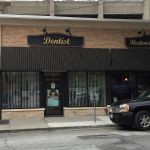How to Deal with Gum Recession Naturally: A Comprehensive Guide
- 1. Understanding Gum Recession and Its Causes
- 2. Natural Remedies to Combat Gum Recession
- 3. The Role of Diet and Lifestyle in Preventing Gum Recession
- 4. Proper Oral Hygiene Practices for Healthy Gums
- 5. When to Seek Professional Help for Gum Recession
- 6. Recommended Products for Promoting Gum Health
1. Understanding Gum Recession and Its Causes
Gum recession is a common dental condition where the gums pull back from the teeth, exposing more of the tooth’s surface or even the tooth root. This condition can lead to sensitivity, increased risk of cavities, and in severe cases, tooth loss. Understanding the causes of gum recession is the first step in preventing and treating it naturally.
The most common causes of gum recession include poor oral hygiene, genetics, aggressive tooth brushing, and periodontal disease. Other factors such as smoking, teeth grinding, and hormonal changes can also contribute to gum recession. It's important to address the underlying causes to prevent further gum damage and promote natural healing.
2. Natural Remedies to Combat Gum Recession
While gum recession requires professional attention in some cases, there are several natural remedies that can help promote gum health and potentially reverse mild recession. Here are a few effective natural solutions:
- Aloe Vera Gel: Aloe vera has natural healing and anti-inflammatory properties. Applying aloe vera gel to the gums can help soothe irritated tissue, reduce inflammation, and promote healing.
- Green Tea Rinse: Green tea is rich in antioxidants and can help fight the bacteria that contribute to gum disease. Gargling with unsweetened green tea can reduce inflammation and promote gum health.
- Sesame Oil Pulling: Oil pulling with sesame oil is a traditional Ayurvedic remedy that helps remove toxins and bacteria from the mouth. It can improve overall oral hygiene and promote gum health by reducing plaque buildup.
- Massage the Gums: Gently massaging the gums with your fingers can stimulate blood circulation and encourage gum regeneration. Be sure to use a soft touch to avoid further irritation.
These natural remedies can be used alongside regular brushing and flossing to support gum health and potentially slow down or reverse the effects of mild gum recession.
3. The Role of Diet and Lifestyle in Preventing Gum Recession
Your diet and lifestyle play a significant role in the health of your gums. A well-balanced diet rich in vitamins and minerals can help strengthen your gums and prevent further recession. Consider the following dietary and lifestyle tips for better gum health:
- Vitamin C: Vitamin C is essential for gum health as it helps the body produce collagen, which is crucial for maintaining gum tissue. Include citrus fruits, strawberries, and leafy greens in your diet to ensure adequate vitamin C intake.
- Calcium and Magnesium: These minerals help maintain strong teeth and bones. Dairy products, leafy greens, and fortified plant-based milk are excellent sources of calcium and magnesium.
- Avoid Sugary Foods: Sugar contributes to plaque buildup, which can lead to gum disease and further recession. Reduce your intake of sugary snacks and drinks to protect your gums from decay.
- Quit Smoking: Smoking impairs gum health by reducing blood flow to the gums, making them more susceptible to infection and recession. Quitting smoking can significantly improve gum health.
By adopting a healthy diet and lifestyle, you can support your gum health and reduce the risk of gum recession in the future.
4. Proper Oral Hygiene Practices for Healthy Gums
Maintaining good oral hygiene is essential for preventing gum recession and keeping your gums healthy. Here are some key practices to follow:
- Brush Gently: Use a soft-bristled toothbrush and brush your teeth gently to avoid damaging your gums. Brushing too hard can wear down the gum tissue and contribute to recession.
- Floss Daily: Flossing helps remove plaque and food particles from between your teeth, areas that a toothbrush may miss. This helps prevent gum disease, which can lead to gum recession.
- Use an Antibacterial Mouthwash: An antibacterial mouthwash can help reduce bacteria in the mouth, which is essential for preventing gum disease and supporting gum health.
- Visit the Dentist Regularly: Regular dental checkups are crucial for early detection of gum problems. Your dentist can identify signs of gum disease or recession and recommend appropriate treatment.
By practicing these habits daily, you can promote healthy gums and prevent further damage from gum recession.
5. When to Seek Professional Help for Gum Recession
While natural remedies and home care can help with mild gum recession, it’s important to seek professional help when the condition becomes more severe. If you experience symptoms like bleeding gums, persistent bad breath, or visible gum recession, it’s time to consult a dentist or periodontist. Professional treatments may include:
- Scaling and Root Planing: This deep cleaning procedure removes plaque and tartar buildup from below the gumline, promoting healthier gums and slowing recession.
- Gum Grafting: In cases of advanced gum recession, gum grafting can be performed to restore lost gum tissue and protect the tooth roots from exposure.
- Laser Therapy: Laser treatment can stimulate gum tissue regeneration and reduce inflammation, providing a less invasive option for treating gum recession.
Don’t wait until the problem worsens—seeking timely professional care can help prevent further damage and restore your gum health.
6. Recommended Products for Promoting Gum Health
Several products are available to help support gum health and manage gum recession. Here are some recommended products to incorporate into your oral care routine:
- Gum Repair Gel: Specially formulated gels can be applied directly to the gums to soothe irritation and promote healing of gum tissue.
- Electric Toothbrushes: Electric toothbrushes with soft bristles can effectively clean your teeth without damaging your gums, helping prevent further recession.
- Antibacterial Mouthwash: An antimicrobial mouthwash can reduce bacteria and plaque buildup, helping prevent gum disease and recession.
Incorporating these products into your daily routine can significantly improve your gum health and help manage the effects of gum recession.
Conclusion
Gum recession is a common issue that can lead to tooth sensitivity and other oral health problems. By taking proactive steps—such as using natural remedies, maintaining good oral hygiene, and improving your diet—you can help prevent and manage gum recession naturally. For more information on gum health and effective treatments, visit Dentistry Toothtruth for expert advice and recommendations.







 Ivy Dental of Fleetwood4.0 (9 review)
Ivy Dental of Fleetwood4.0 (9 review) Dr. Hamish Carpenter, DDS5.0 (3 review)
Dr. Hamish Carpenter, DDS5.0 (3 review) Triplett & Livingston Dental5.0 (964 review)
Triplett & Livingston Dental5.0 (964 review) Murray Orthodontics5.0 (538 review)
Murray Orthodontics5.0 (538 review) Rainier Dental4.0 (157 review)
Rainier Dental4.0 (157 review) Ridgewood Valley Pediatric Dentistry4.0 (97 review)
Ridgewood Valley Pediatric Dentistry4.0 (97 review) The Importance of Oral Health Education During Pregnancy for a Healthy Pregnancy
The Importance of Oral Health Education During Pregnancy for a Healthy Pregnancy Best Tips for Brushing Your Teeth Properly for Healthy Gums: Essential Techniques for Oral Health
Best Tips for Brushing Your Teeth Properly for Healthy Gums: Essential Techniques for Oral Health Why Skipping Dental Checkups Can Lead to Bigger Oral Health Problems
Why Skipping Dental Checkups Can Lead to Bigger Oral Health Problems Advantages of Porcelain Dental Restorations
Advantages of Porcelain Dental Restorations How Can Diabetes Cause Tooth and Gum Problems? Preventing and Managing Oral Health Issues
How Can Diabetes Cause Tooth and Gum Problems? Preventing and Managing Oral Health Issues Healthy Habits for Promoting Good Oral Health and Hygiene: Tips for a Healthy Smile
Healthy Habits for Promoting Good Oral Health and Hygiene: Tips for a Healthy Smile